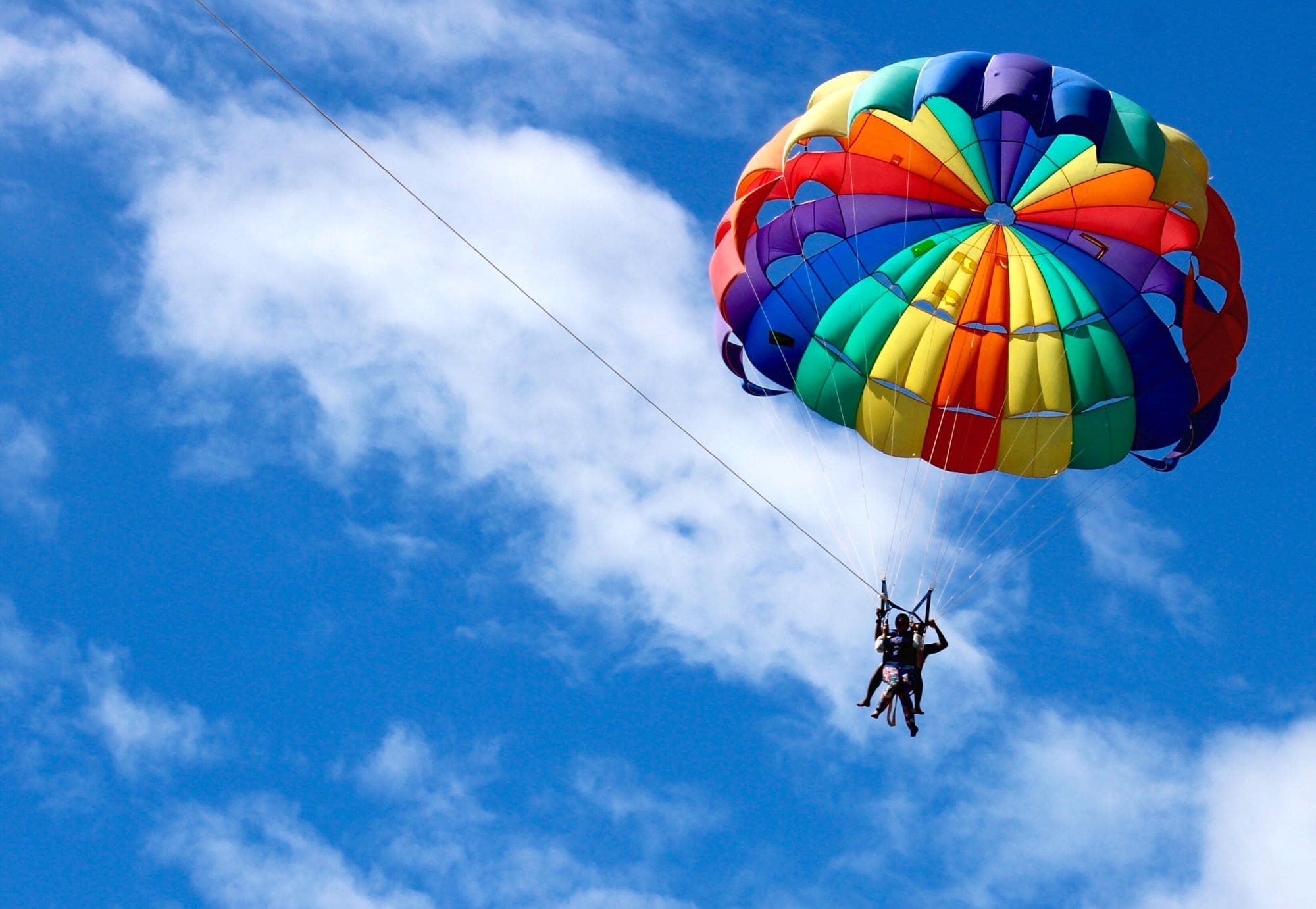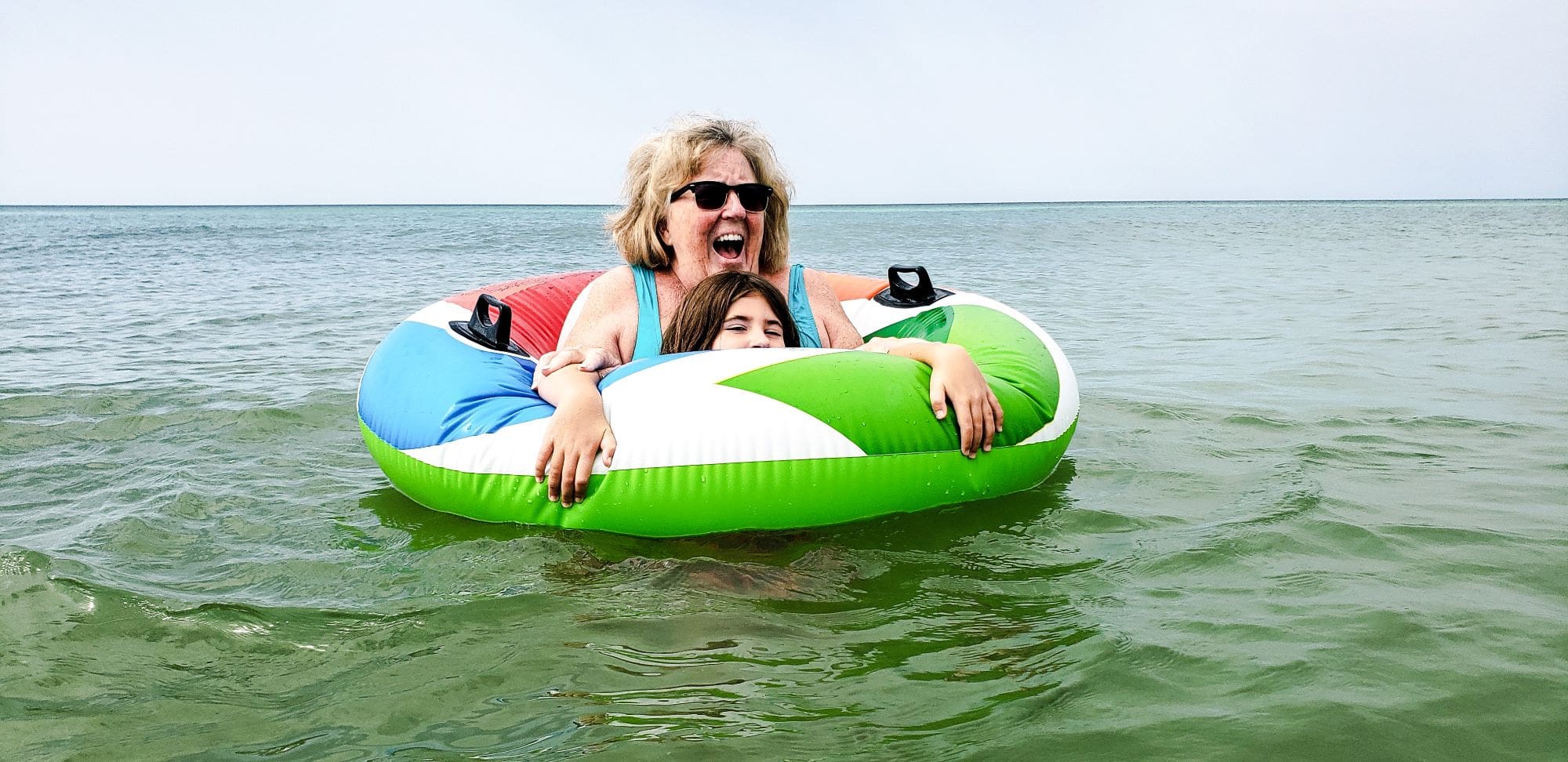Overcoming Your Fear of Water Activities: A Confidence Guide
Water Activities: What are they? And Other Commonly Asked Questions

Watersports or water activities are recreational sports that take place on, in, or beneath the water. Water activities are highly popular summer activities that engage friends and family in fun and thrilling adventures in lakes, rivers, oceans, and more. While some participate in competitive and professional watersports, most participants are recreational enthusiasts with just-for-fun mentalities. While there are copious amounts of water activities, the most popular fall into three categories: surface watersports, underwater watersports, and muscle powered watersports. Surface watersports include jet skiing, water skiing, tubing, wakeboarding, and more, and include activities where you skim across the top of the water. Underwater sports often require a higher level of swimming abilities, and include activities such as snorkeling, free-diving, scuba diving, and more. Finally, muscle watersports are activities that require a level of physical exertion, this may include kayaking, rowing, canoeing, and paddleboarding. In Destin, surface and muscle watersports are most common. Recreational watersports are generally safe and popular activities, however, like all sports and activities, they come with specific rules and regulations. In the next paragraph we will discuss water safety, and how to prepare for your next excursion like an expert. So if you’re planning to parasail in Fort Walton beach or curious about jet ski rentals, we have the perfect guide for you!
Water Safety
Know the risks. While recreational water activities are generally safe, it is important to be aware of the risk of accident and injury. Water safety is an important topic to be aware of before you participate in any water activity, but is especially important before you engage in water sporting activities like jet skiing, parasailing, boating, and others.

Before you participate in a water activity, do the following self assessment. Ask yourself, are you comfortable swimming in deep water? How far can you swim before getting tired? Do you know how to properly size and adjust a lifejacket? While your answers should not necessarily disqualify you from participating in recreational watersports, it’ll give you a baseline for what questions to ask water activity guides and employees. In addition, some watersports require special certifications, waivers, and licenses before you can participate in the activity. Activities such as renting a jet ski or a pontoon boat requires that you pass a boating safety class prior to your excursion. Other things to consider include weather conditions, boat traffic, tide schedules, and other water conditions. With these things in mind, recreational watersports can be a safe and fun way to engage your friends and family in outdoor activity.
Facing your fears
Sometimes we’re our own worst enemies. While it’s easy to let our fear get in the way of our own fun, it is important to be able to differentiate between a healthy and an irrational amount of fear. Let’s distinguish the two in a couple of scenarios.
Scenario one
You and your friend get a jet ski together and spend the afternoon having a blast skimming across waves and soaking in the afternoon sun. Although you still have an hour to return your jet ski, you notice that the sky is turning dark and cloudy, and the waves are getting choppy. You start to get anxious and suggest to your friend that you head back to the rental place, but your friend assures you that you are just being dramatic and that you two should start out on the water and get your money’s worth.
Scenario two
You and your significant other have been planning to parasail. Although the thought of it makes you a little uneasy, seeing the coastline from the sky has long been on your bucket list, and you’re super excited to catch some once in a lifetime views. Once you get to the rental place, you are taken through several safety courses and instructed by trained professionals who want nothing more than to deliver you a safe and thrilling experience. With your anxiety at ease, you take to the sky, but as you go higher and higher, those nerves that you felt before start to resurface, forcing you to question if you are safe, and whether or not you’ve made a mistake. You start to panic, telling your partner that you don’t feel safe and you want to get down.
Which scenario is an example of rational fear and which is an example of healthy fear?
If you said that scenario one was an example of healthy fear, you would be correct. While taking the jet ski into overcast and choppy conditions may not pose an immediate threat, weather can be incredibly unpredictable. It would be unsafe and unfavorable to be out on the water in the event of a weather emergency. Scenario two is an example of irrational fear. In this scenario, although the subject knows that there is nothing to fear and has had the proper training to prepare for the activity, their own anxiety and distrust has led them to falsely believe that they’re unsafe. Feeling anxious about doing watersports, especially if you’re new to them, is totally normal. If you find yourself feeling scared or anxious, try to find the root of your anxiety. Are you worried about falling? Are you scared of what’s in the water below? When you’ve identified the source of your anxiety, it is much easier to overcome it. The best three pieces of advice to overcome your fears are the following: get familiar with water safety gear and learn the basics of general water safety, go with a trusted friend or family member, and ground yourself with breathing techniques. With these things in mind, there isn’t much you can’t do!

Improving confidence
After you’re faced your fears once, it’s easier to feel more comfortable with the activity that once scared you. Now that you know you can do the activity, it’s time to improve skill and confidence! Like many sports and activities, watersports require time and practice to gain confidence and skill. If you’re vacationing for a weekend, it may be difficult to improve skills for activities such as water skiing, kayaking, and others. However, for activities like getting a jet ski and parasailing, building confidence is something you can do the first time you do the activity. After you’ve faced your fears and established that you’re safe and comfortable, you’ll start to get the hang of the experience. If you’re jet skiing, maybe that means taking it slow for a few miles before slowly ramping up your speed. If you’re parasailing, maybe it takes a few deep breaths and some reassurance from your partner before you can truly take in the stunning panoramic views around you.
Know your Limits
Do not be afraid to say no! Water activities are made to be fun and exciting, if you’re starting to feel uncomfortable, overwhelmed, or unsafe, it is important to speak up and take a break from the activity. Remember, this is your experience. If you aren’t having a fun time, do not be afraid to admit that you’ve reached your limit. Let’s say you’re jet skiing with your best friend or significant other and they are going faster than you are comfortable with, it is more than okay to let them know that you are uncomfortable and request that they slow down a bit. The majority of the time we guarantee that the other rider will be more than happy to meet your needs to make sure that you both have a positive experience. Activities like parasailing require commitment. Please avoid this activity if you think it will cause extreme stress or anxiety to you or another participant. To avoid the unlikely possibility that your fellow participant ignores your request, we recommend setting boundaries with them before you do any water activity. When it comes to any water activity, your safety and comfortability is the top priority. Our staff and most water sports guides want nothing more than to make sure that visitors have a safe and enjoyable experience. If you have any questions or concerns, don’t hesitate to share them with your watersports guide.